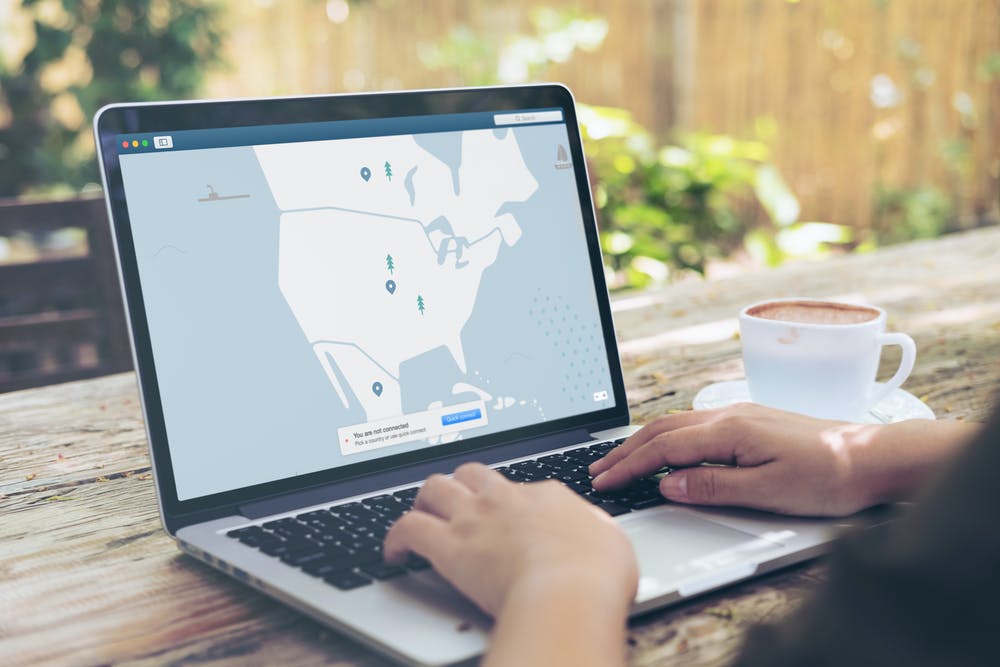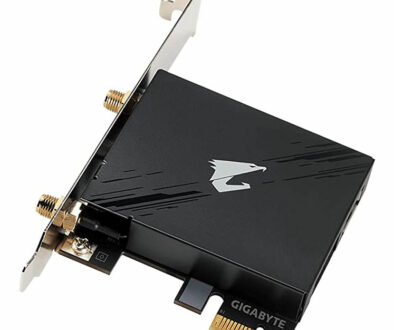What is a VPN and Do I Really Need One?
A Virtual Private Network or a VPN is a privacy tool that protects you from prying eyes. Here we discuss in details about VPNs and their usefulness.
The ever-increasing reach of technology comes at a cost. The cost is your privacy. As the world moves closer towards the Internet of Things at a massive scale where every step, we take in our daily lives is with the help of the Internet, our privacy is under threat.
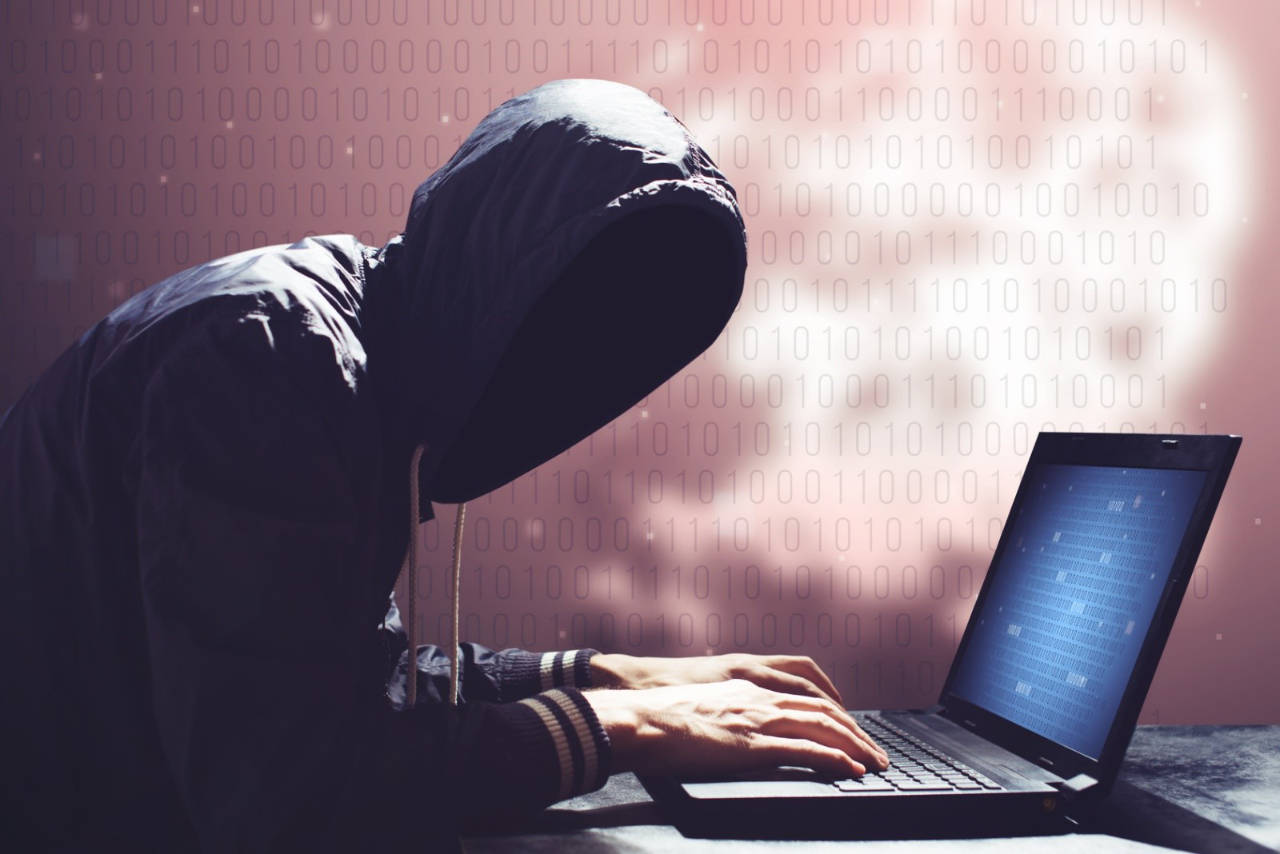
The threat comes in micro and macro levels. You may find a certain website being blocked in your geographical region. You may come across an news on the Internet which talks about the Internet connection being monitored in certain regions of the world by governments. You may come to hear incidents of people who claim their computers were hacked after months of snooping and their life’s savings were stolen. In each of these cases, you would be left helpless as using the Internet would mean exposing yourself to the risks associated with it. Hence there is a need for a network where no matter where you are and what you do, you are safe, at least virtually. Enter Virtual Private Networks or VPNs.
What is a VPN
Essentially, VPNs are computer applications or mobile-based applications (known as a VPN client app) that help you protect your privacy. It is a software that creates a private network for its user, even if the user is on a home network to access the Internet. Many believe that the VPN is going to be a game-changer in the coming days and used by most people as the way to stay connected to the Internet more than ever especially when they access the Internet through various home or public networks.
How does VPN work
A VPN works on tunnelling and encryption protocols where it routes the data packets of its user through its remote server. This means that the VPN provider’s server becomes the source of the information you are seeking. A VPN turns all the data into a language that only your device and its server can understand. This change of language is called ‘encryption’. The VPN provider’s client encrypts all the data that leaves your device and sends it to its server which decrypts the data and reads the information to understand your requirements.
Next, it fetches the resources you need from the Internet and encrypts the information before sending it to you which again gets decrypted at your device by your VPN client. That is why a hacker cannot hack into this encrypted flow of packets because the hacker won’t be able to unlock the encryption. Even your broadband provider cannot see what you are doing on the Internet because the data does not pass through their servers at all or even if it does, it is cloaked, or encrypted.
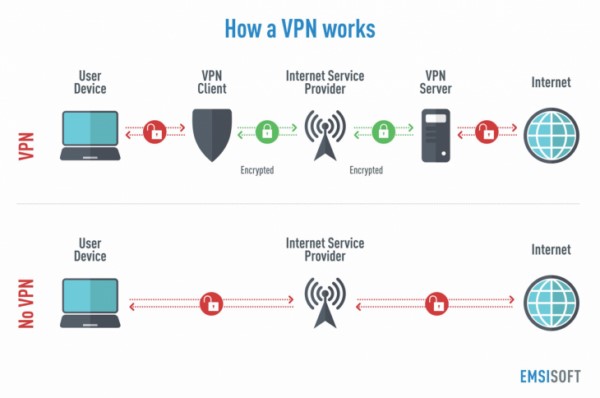
What is the Benefits of a VPN
This gives you complete privacy as there is no trace or log of what you are doing on the Internet. It is all encrypted. The volume of data is still counted against your quota but there is no specific information as to which websites have been accessed or what information has been sent or received.
VPN and Privacy
When you sign up for an Internet connection, your service provider assigns your router an Internet Protocol address. An IP address or Internet Protocol address is required by every device or router that connects to the Internet. Your connection is identified based on this IP address. Usually, an IP address is region-based. Hence, if someone knows your IP address, they can find out your physical location too.
IP address masking or hiding is an imperative step towards privacy. Whenever you seek information on the Internet, the ‘receiving server’ sees your IP and knows the location you are at. A VPN works to mask your real IP address. Since all the information passes through their servers and they are the ones requesting information on your behalf, it’s their assigned IP address that gets displayed at the receiving server.
A good VPN usually employs Dynamic IP which enables your system to show different IP every time it requests and receives information. Your ‘location’ is therefore constantly changing, making constant snooping or eavesdropping an extremely tedious endeavour. The change in IP also lets you access content that might be blocked at your actual location.
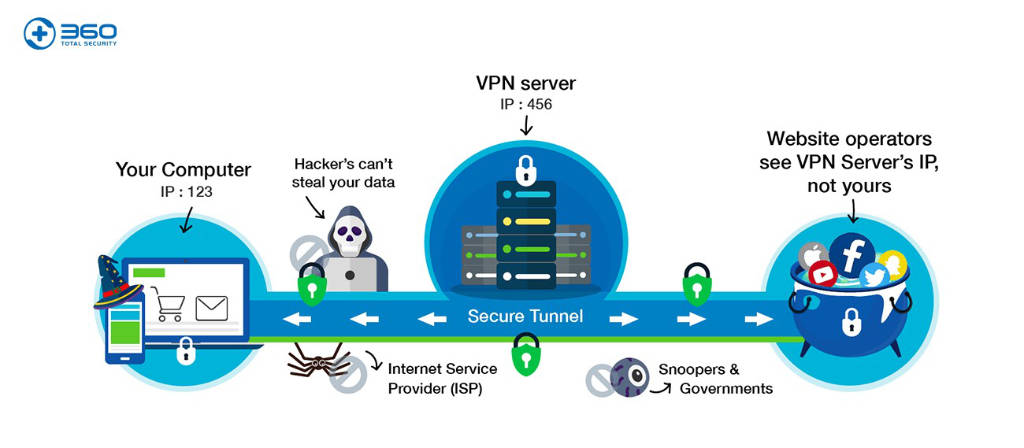
Can a VPN Fully Secure My Internet Connection?
A VPN can mask your IP and make you virtually anonymous on the Internet as your real IP is not displayed and your geographical location gets altered. A VPN can thus secure you from real-time hacking and prying attempts. However, there are many ways through which an intrusion can happen. Many malicious applications on the Internet can quietly creep into your system and set themselves up to capture and send personal information from your device.
These are called Rats which will set up a secured connection for their ‘owners’ from your system to theirs. A keylogging application which record the keys you are pressing and again send this back to base. This is how personal details such as usernames and passwords used on banking sites are leaked.
Additionally, there are malware, viruses and ransomware on the Internet which can damage your files and data. A VPN cannot help you in this regard as it protects the data only once it gets generated from your system but not the system itself. To get all-round protection, it is always recommended that you get a good antivirus/anti-malware software that secures your device internally from malicious applications and attacks.
How Do Get VPN?
1. Using a VPN Client
A VPN can be installed on the device where you primarily access the Internet. If it’s a computer then a VPN client can be installed on that system. Usually, this is the safest bet as not only the browsers but other applications that access the Internet to communicate with their servers for a variety of reasons will also be covered by this. A client-based VPN would encrypt every information that leaves the system.
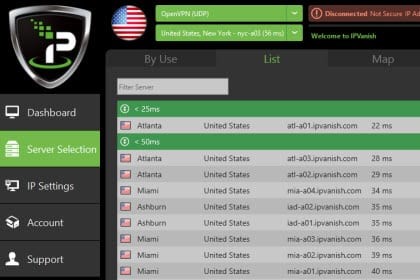
2. Using Browser Add-ons
There are many VPN providers which offer browser-based VPNs. These are available in the form of small extensions which can be installed in your browsers. They however do not offer system-wide protection. There remains a major risk of intrusion as browser VPNs do not secure the entire Internet connection. It only secures the information that goes out and comes into that specific browser.
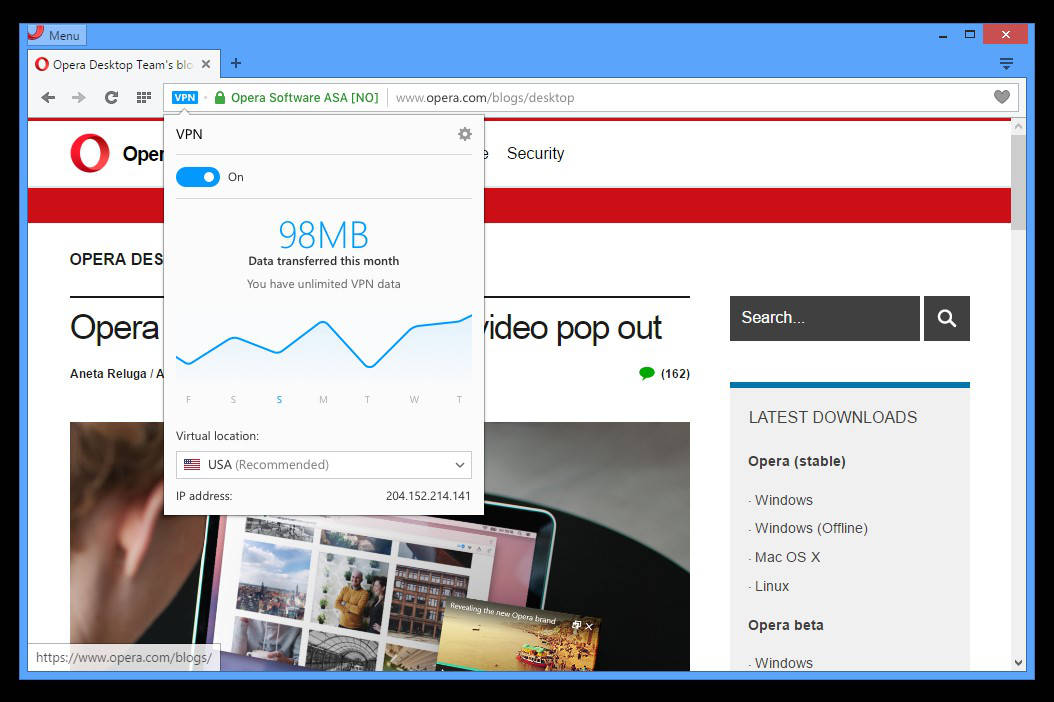
3. Router VPN
If you access the Internet through a variety of devices but from a wireless router, it’s always sensible to get a Router VPN solution than getting an individual VPN for every device. Like your standard router, Router VPN solution has added VPN settings and configuration pre-installed in a router so it will secure the entire Internet connection right for every device that connects to the primary access point.
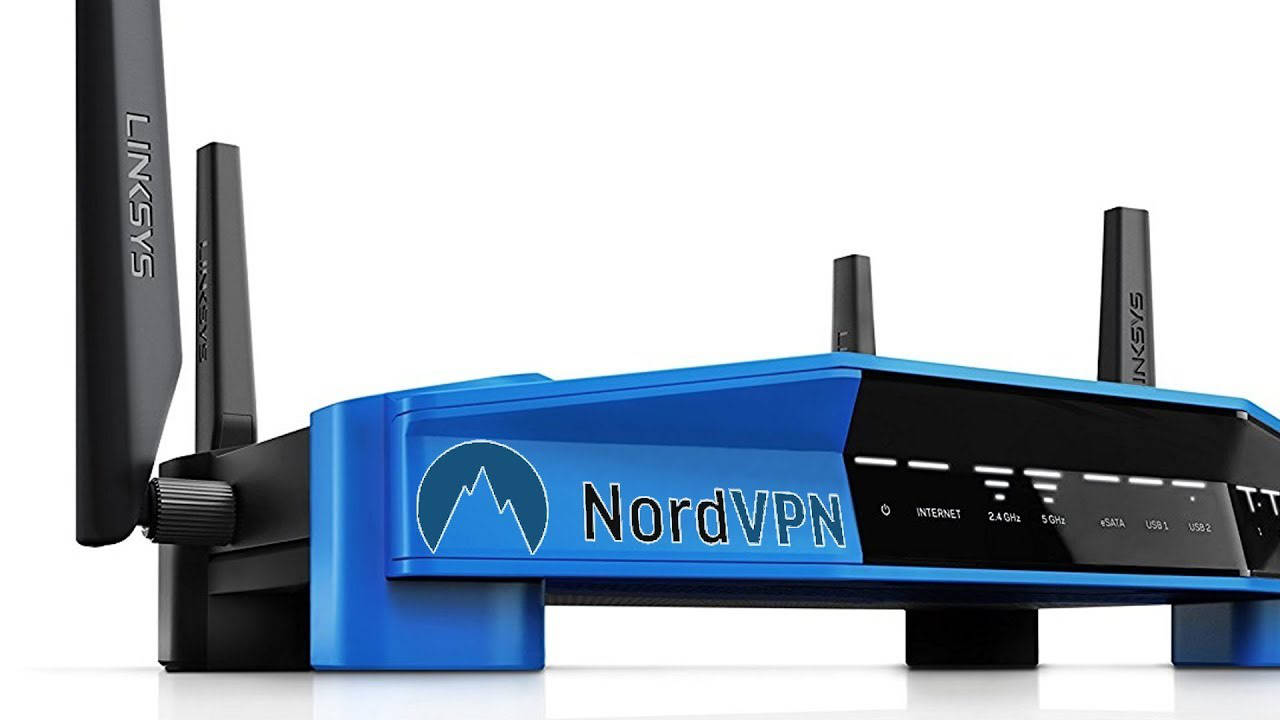
4. Smartphone VPN
If you primarily use mobile to access the Internet then it may be a good idea to get a VPN for your mobile. Many VPN clients are available in the application store depending on your mobile’s operating system. It is advised that you go for the more renowned and paid ones than going with a free version.
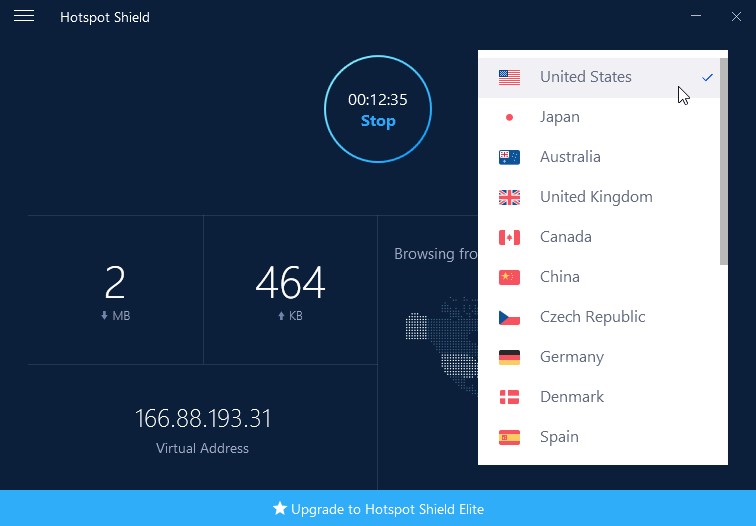
Tips to Choose a Good VPN?
A good VPN provider is judged by its competency to make its user anonymous. While nothing in this world is full proof and you should refrain from indulging in illegal activities even through a VPN, it is possible to achieve high levels of privacy through VPNs. Few things to considers when choosing a VPN.
- VPNs reduce Internet speeds as it routes traffic through its server. Hence you must choose a VPN where the speed penalty is within acceptable limits. Express VPN and Proton VPN are renowned VPN providers amongst the least speed reduction percentages calculated to be around 50 percent.
- A reliable VPN service must have a large number of VPN servers in various geographical locations to bounce off traffic between its servers to protect the privacy of its users. With servers in over 65+ countries, Express and Nord VPN again top the list
- VPN provider’s logging policy must be checked. VPN providers regularly come under the scanner as they enable users to become anonymous, but only from third party and agencies around the world. They can keep logs of their users. Hence, we must choose a VPN that won’t spill the beans at the first charge by the authorities. Express VPN has a Zero Log Policy due to which it could stand firm during a crackdown on them.
- The encryption protocol of a good VPN provider must be 256 bit encryption which is almost impossible to hack. However, many VPN providers offer only 128bit encryption. Check the technical details while choosing. Adequate research is needed before we choose one.
- Many users do Peer-to-Peer file transfer which a VPN provider may not support. Hence it is advised to check the optional features of a VPN to see if it is P2P compatible. IP Vanish is a VPN provider that is P2P compatible and also supports Netflix. Cyber Ghost VPN works well with P2P file transfers.
- Many countries block VPNs themselves so that people are forced to follow the Internet restrictions of that country. The Great Firewall of China’ has garnered quite a name for itself for restricting free speech and the Internet. Hence, make sure the VPN you are going for works in the country you will use it in or else it would be a waste of time and effort. SurfShark VPN works well in China along with other top VPN providers.
Final Thoughts
VPNs have been around for more than two decades now but the need for VPN services have never been as great as it has become today. With an increased desire of governments to monitor the activity of their citizens on the pretext of national security, there have been numerous intrusions into the privacy of every citizen.
To add to that many on the Internet have resorted to unethical and unfair practices to earn money in the form of duping or hacking others over the Internet. Victims have had their personal details stolen and shared over the Internet. Your privacy and confidentiality is open to being compromised. Hence, we must use the resources or any avenue available to protect our privacies.
VPNs are a boon for the modern generation as they step on to an ever-connected world and face the risks that come with it and still be anonymous.
